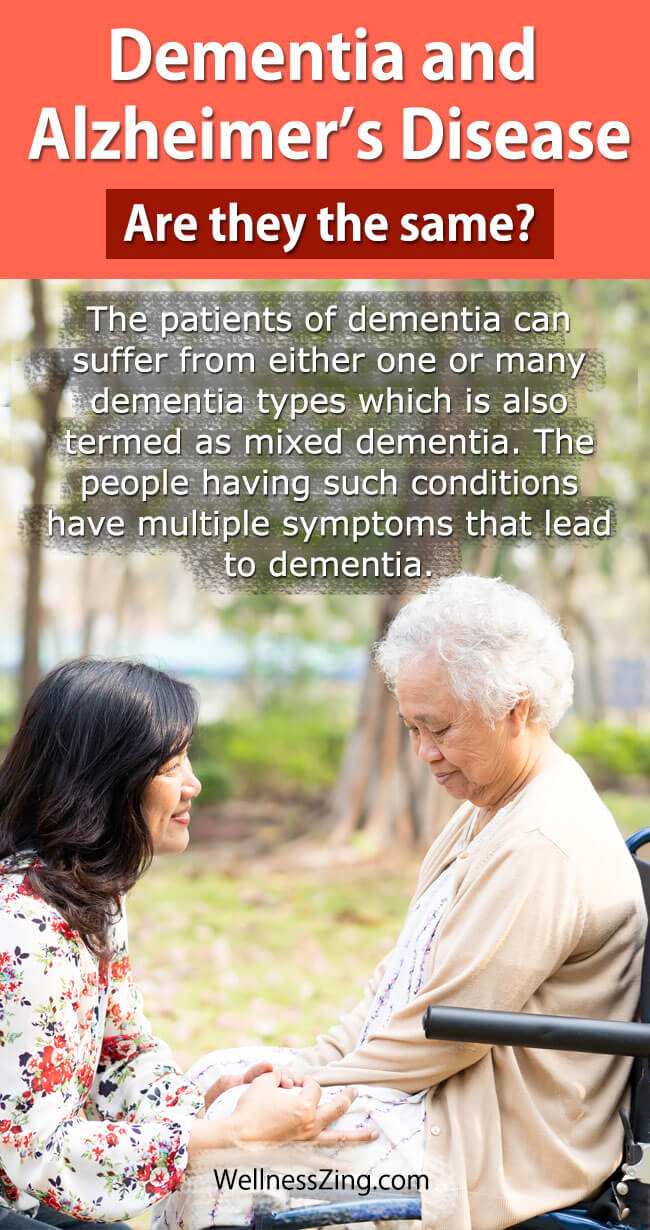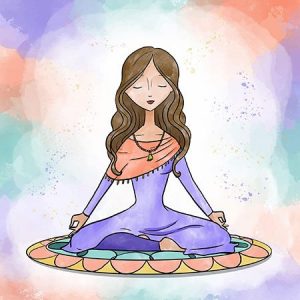Some myths about Dementia
Myth 1: You cannot do anything for reducing the chances of suffering from dementia.
Fact: According to some shreds of evidence, by remaining socially engaged, learning new hobbies and skills, and practicing regular exercises can help in prevention from dementia. Again, one should also avoid unhealthy food, smoking, alcohol, etc. and maintain a healthy blood pressure level for reducing the chances of dementia.
Myth 2: Dementia is natural as one age.
Fact: False. Dementia doesn’t come with any relationship with aging. Following some facts, around 9 out of 10 people suffering from dementia are a young one and not elders. There are many people who are still safe from dementia, even in the age of 80s and 90s.
Myth 3: People who are suffering from dementia fail to learn what is going in their surroundings.
Fact: Not really. People having dementia at times not only understand things but also can express it properly. All you need to do is give such people some time for gathering their thoughts prior to responding. Again, it is essential to communicate directly with the patient rather than their family members or caretaker.
Myth 4: If someone is suffering from a loss of memory, he surely is having dementia too.
Fact: That’s not true. There are many conditions in which an individual can suffer from memory loss like stroke, depression, severe deficiency of vitamin, infections, abnormalities related to thyroid, side-effects of particular medications, etc. Hence, loss of memory isn’t every time connected with dementia.
Myth 5: All individuals suffering from dementia have a similar progressing pattern.
Fact: Every individual comes with a different pattern of progressing when it comes to dementia. Some of the rare symptoms observed include paranoia, aggression, wandering, agitation, personal hygiene issues, sundowning, hallucinations, etc. Again, the age and the degree also matter while deciding the pattern of progress which is different per individual.
Dementia and Alzheimer’s Disease – Are they the same?
Does this question disturb your mind every time you hear their names? Don’t worry, you are not alone sailing in the boat. There are many who get confused and count both the same. Both dementia and Alzheimer’s disease are quite similar to each other, yet both of them are much different.
Nearly 8 out of 10 people think the terms are synonymous. So, let’s understand the basics of both the terms for a clear understanding.
Dementia is not a particular kind of disease, but a group of mental disabilities, all under one umbrella. The symptoms included in the term are issues with memory, language, perception, problem-solving, etc. On the other hand, Alzheimer’s disease is one disease that comes with a severe impact on the brain. The disease also gets to a worse state as time passes and affects the abilities like thought, language, and importantly, the memory of the individual.
No doubt, both the diseases can develop at a younger age, the risk of having any of them increases as you get elder. However, none of them is considered a normal health condition related to age. As both the health issues are much similar to each other, there is still a thin line of differentiation, and today, we shall look over it to eliminate any confusion regarding both.
Dementia – An Introduction
Rather than terming it as a disease, dementia can be perfectly termed as a syndrome. Dementia is a syndrome that doesn’t come with any particular diagnosis. Dementia is a symptom group that affects the smooth functioning of the brain like reasoning and memory which is also termed as mental cognitive tasks. Dementia is a group of various health conditions and Alzheimer’s disease is among them.
The patients of dementia can suffer from either one or many dementia types which is also termed as mixed dementia. The people having such conditions have multiple symptoms that lead to dementia and mixed dementia can only be diagnosed and confirmed after autopsy.
As the condition progresses, it can worsen the condition of the individual as he would fail in functioning independently. This is among the primary reasons for disability in older patients which leaves an emotional burden on the family members and caretakers as well as financial burden too.
Dementia Symptoms
Dementia can easily be tracked through particular early symptoms like forgetfulness which are mild. Some simple episodes like having trouble tracking the time, losing a track of similar settings, confusion, etc. are the initial symptoms that can lead to learning about dementia. Having issues with personal care, inadequate hygiene, monotonous questioning, lack of accuracy in decision making, etc. are other symptoms of dementia.
Particular symptoms that reveal the advanced stage of dementia include the inability of looking after oneself, remembering family members and friends, familiar places, etc. Change in behavior can also result in depression along with aggression which is also the symptoms of dementia.
Dementia Causes
The risk of having dementia basically develops along with aging. It takes place when the cells in the brain are damaged. However, along with these other conditions that lead to dementia include Huntington’s disease, Parkinson’s disease, and Alzheimer’s disease. All these degenerative health issues damage the brain cells in different sets. Some other causes of dementia include:
- infections like HIV
- stroke
- vascular disease
- use of the chronic drug
- depression, etc.
Dementia is hence a state when the individual suffers from a hard time some regular activities like communication and speech, memory, reasoning and judgment, concentration and focus, and visual perception.
Again, nearly all the dementia types come with some similar symptoms, and this makes it difficult for the doctor to learn which type the patient is suffering from. To make it a little easy, it is important to share all the symptoms, intake of alcohol, medications, medical history, etc. regarding the patient which helps in getting to the right treatment.
Alzheimer’s Disease – An Introduction
This is among the common types of dementia. Nearly 60 – 80 percent of people suffering from dementia are already having Alzheimer’s disease too. Alzheimer’s disease is a progressive condition, which ultimately gets to a worse stage as time passes. The disease generally affects individuals who have crossed the age of 65.
Alzheimer’s disease basically attacks the body when the fibers and proteins or say the tangles and plaques get built up in the brain. On building up, they block the signals from the nerve and also damage the cells of the nerve. When this happens, the first most symptom observed of Alzheimer’s disease is memory loss which begins with a mild impact on the individual but ends up with a worse condition. The people suffering from Alzheimer’s disease find it difficult to communicate with others, perform routine tasks, etc. Along with this, some other common symptoms of Alzheimer’s disease include changes in mood, aggression, confusion, etc.
No doubt, the symptoms are quite clear in Alzheimer’s, the doctors still need to conduct particular tests regarding the memory, attention, vision, language, and getting brain images through MRI.
Alzheimer’s Disease Symptoms
Alzheimer’s disease is a type of dementia and hence, comes with some common symptoms like dementia. The list includes symptoms like vascular dementia, frontotemporal dementia, Lewy body dementia, Parkinson’s disease, Huntington’s disease, Creutzfeldt-Jakob disease, mixed dementia, etc.
Hence, no doubt, people of old age are more likely to suffer from Alzheimer’s disease, it is not considered to be a part of normal aging. There are many people who are younger and still suffering from the disease.
Dementia Vs. Alzheimer’s Disease
Hence, where Dementia is a group of disorders related to the brain, Alzheimer’s disease is a part of dementia, which is widely mistaken as the same. The symptoms of both the health issues overlay each other which is among the primary reasons why people consider it the same. There are particular symptoms that are found in both the health issues which includes:
- communication diminishing
- memory loss
- a decline in thinking abilities
However, apart from this, if the individual is suffering from other symptoms too, it can be dementia. The symptoms include:
- apathy
- difficulty in remembering conversations, events, places, and people
- depression
- confusion
- impaired judgment
- changes in the behavior
- lack of focus
- difficulty in walking, swallowing, speaking, etc.
Where some cases of dementia are found sharing particular symptoms from the list, some may have or may not have other symptoms which makes diagnosis complex.
Dementia Vs. Alzheimer’s Disease: Treatment
The treatment of Dementia basically relies on the precise causes as well as the type of dementia, but on the other hand, there are many dementia treatments that may overlap with the treatment of Alzheimer’s disease.
1. Dementia Treatment
Talking about the treatment of Dementia, learning the causes of dementia can be much helpful. The dementia conditions that are likely to retort during the treatment include tumors, drugs, hypoglycemia, and metabolic disorders.
For many dementia cases, the situation is not revocable. Yet there are conditions that can be treated as well. Getting the right medications is among the different ways of managing dementia, however, the actual treatment depends on the causes.
2. Alzheimer’s Treatment
Currently, there is no cure for patients having Alzheimer’s disease. However, there are different treatments or therapies that help in managing the symptoms. The options include medications for dealing with the changes in the behavior like antipsychotics, medications for reducing or managing memory loss like rivastigmine, cholinesterase inhibitors donepezil, memantine, etc., medications that help in working on the sleeping patterns and depression levels, etc.
There are alternative treatments that help in boosting the function of the brain along with the health of the patient like fish oil, coconut oil, etc.
Apart from these, there are particular treatments that can be carried out for both the conditions, however, before starting with them, a thorough study of the causes, symptoms, etc. needs to be carried out.
Bottom Line
Talking about the treatment of both Dementia and Alzheimer’s disease, there is no particular cure for both. The treatments to dementia basically depend on the direct causes which help in reducing and managing dementia, particularly, Parkinson’s dementia. Similarly, vascular dementia can be reduced to some extent, however, it still reduces the lifespan of the patient. Some dementia types are reversible while some are irreversible. This leads to an increase in impairment as time passes.
Alzheimer’s disease is an incurable health issue, which can be bifurcated into three different stages that vary from each other considering their seriousness. When an individual is diagnosed with Alzheimer’s disease, the lifespan of the individual can be estimated to around 4 to 8 more years, but there are some who have survived for around 20 years too.
To conclude the discussion, both dementia and Alzheimer’s disease are not the same, however, they are quite similar to each other. This makes it essential to see a medical practitioner and talk to him about the symptoms, medical history, and other habits that would help him with the right diagnosis as well as treatment to manage the symptoms.
Have something to share with us? Do write to us.



















